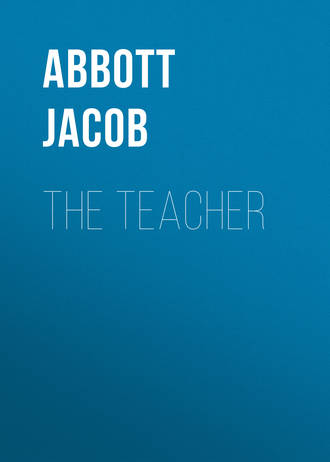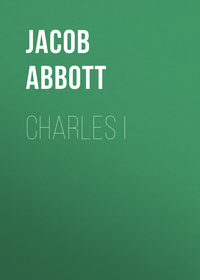
The Teacher
When a page of writing could not pass, a brief remark, calling the attention of the pupil to the faults which prevented it, was sometimes made in pencil at the bottom of the page. In other cases, the fault was of such a character as to require full and minute oral directions to the pupil. At last, to facilitate the criticism of the writing, a set of arbitrary marks; indicative of the various faults, was devised, and applied, as occasion might require, to the writing books, by means of red ink.
These marks, which were very simple in their character, were easily remembered, for there was generally some connexion between the sign and the thing signified. For example; the mark denoting that letters were too short, was simply lengthening them in red ink. A faulty curve was denoted, by making a new curve over the old one, &c. The following are the principal criticisms and directions for which marks were contrived.
Strokes rough.
Curve wrong.
Bad termination.
Too slanting, and the reverse.
Too broad, and the reverse.
Not parallel.
Form of the letter bad.
Large stroke made too fine, and the reverse.
Too tall, or too short.
Stems not straight.
Careless work.
Paper wasted.
Almost well enough to pass.
Bring your book to the teacher.
Former fault not corrected.
A catalogue of these marks, with an explanation, was made out and placed where it was accessible to all, and by means of them the books could be very easily and rapidly, but thoroughly criticised.
After the plan had gone on for some time, and its operation was fully understood, the teacher gave up the business of examining the books into the hands of a Committee, appointed by him from among the older and more advanced pupils. That the Committee might be unbiased in their judgment, they were required to examine and decide upon the books, without knowing the names of the writers. Each scholar was indeed required to place her name on the right hand upper corner of every page of her writing-book, for the convenience of the distributors; but this corner was turned down, when the book was brought in, that it might not be seen by the Committee.
This Committee were entrusted with plenary powers, and there was no appeal from their decision. In case they exercised their authority in an improper way, or failed on any account to give satisfaction, they were liable to impeachment, but while they continued in office, they were to be strictly obeyed.
This plan went on successfully for three months, and with very little diminution of interest. The whole school went regularly through the lessons in coarse hand, and afterwards through a similar series in fine hand, and improvement in this branch was thought to be greater than at any former period in the same length of time.
The same principle of arranging the several steps of an art or a study into a series of lessons, and requiring the pupil to pass regularly from one to the other, might easily be applied to other studies, and would afford a pleasant variety.
12. The Correspondence. A master of a district school was walking through the room, with a large rule in his hands, and as he came up behind two small boys, he observed that they were playing with some papers. He struck them once or twice, though not very severely on the head, with the rule which he had in his hand. Tears started from the eyes of one. They were called forth by a mingled feeling of grief, mortification, and pain. The other who was of "sterner stuff," looked steadily into the master's face, and when his back was turned, shook his fist at him and laughed in defiance.
Another teacher seeing a similar case, did nothing. The boys when they saw him; hastily gathered up their playthings and put them away. An hour or two after, a little boy who sat near the master, brought them a note addressed to them both. They opened it and read as follows.
To Edward and John,
I observed, when I passed you to-day, from your concerned looks, and your hurried manner of putting something into your desk, that you were doing something that you knew was wrong. When you attempt to do any thing whatever, which conscience tells you is wrong, you only make yourself uneasy and anxious while you do it, and then you are forced to resort to concealment and deception, when you see me coming. You would be a great deal happier, if you would always be doing your duty, and then you would never be afraid.
Your affectionate teacher, – –.As the teacher was arranging his papers in his desk, at the close of school, he found a small piece of paper neatly folded up in the form of a note, and addressed to him. He read as follows,
Dear teacher,
We are very much obliged to you for writing us a note. We were making a paper box. We know it was wrong, and are determined not to do so any more. We hope you will forgive us.
Your pupils,Edward,John.Which of these teachers understood human nature best?
13. Weekly Reports. The plan described by the following article, which was furnished by a teacher for insertion here, was originally adopted, so far as I know, in a school on the Kennebec. I have adopted it with great advantage.
c. A teacher had one day been speaking to her scholars of certain cases of slight disorder in the school, which, she remarked, had been gradually creeping in, and which, she thought, it devolved upon the scholars, by systematic efforts, to repress. She enumerated instances of disorder in the arrangement of the rooms, leaving the benches out of their places, throwing waste papers upon the floor, having the desk in disorder, inside, spilling water upon the entry floor, disorderly deportment, such as too loud talking or laughing in recess, or in the intermission at noon, or when coming to school, and making unnecessary noise in going to, or returning from recitations.
"I have a plan to propose," said the teacher, "which I think may be the pleasantest way of promoting a reform, in things of this kind. It is this. Let several of your number be chosen a Committee to prepare, statedly—perhaps as often as once a week,—a written report of the state of the school. The report might be read before the school at the close of each week. The Committee might consist in the whole, of seven or eight, or even of eleven or twelve individuals who should take the whole business into their hands. This Committee might appoint individuals of their number, to write, in turn, each week. By this arrangement, it would not be known to the school generally, who are the writers of any particular report, if the individuals wish to be anonymous. Two individuals might be appointed at the beginning of the week, who should feel it their business to observe particularly the course of things from day to day, with reference to the report. Individuals not members of the Committee, can render assistance by any suggestions they may present to this Committee. These should however generally be made in writing."
"Subjects for such a report will be found to suggest themselves very abundantly, though you may not perhaps think so at first. The Committee may be empowered, not only to state the particulars in which things are going wrong, but the methods by which they may be made right. Let them present us with any suggestions they please. If we do not like them, we are not obliged to adopt them. For instance, it is generally the case whenever a recitation is attended in the corner yonder, that an end of one of the benches is put against the door, so as to occasion a serious interruption to the exercises when a person wishes to come in or go out. It would come within the province of the Committee to attend to such a case as this, that is, to bring it up in the report. The remedy in such a case is a very simple one. Suppose however, that instead of the simple remedy, our Committee should propose that the classes reciting in the said corner should be dissolved and the studies abolished. We should know the proposal was an absurd one; but then it would do no hurt;—we should have only to reject it."
"Again, besides our faults, let our Committee notice the respects in which we are doing particularly well, that we may be encouraged to go on doing well, or even to do better. If they think for example, that we are deserving of credit for the neatness with which books are kept,—for their freedom from blots or scribblings, or dog's-ears, by which school-books are so commonly defaced, let them tell us so. And the same of any other excellence."
With the plan as thus presented, the scholars were very much pleased. It was proposed by one individual that such a Committee should be appointed immediately, and a report prepared for the ensuing week. This was done. The Committee were chosen by ballot. The following may be taken as a specimen of their reports.
Weekly Report.
'The Committee appointed to write the weekly report have noticed several things which they think wrong. In the first place there have been a greater number of tardy scholars, during the past week than usual. Much of this tardiness we suppose is owing to the interest felt in building the bower; but we think this business ought to be attended to only in play hours: If only one or two come in late when we are reading in the morning, or after we have composed ourselves to study at the close of the recess, every scholar must look up from her book,—we do not say they ought to do so, but only that they will do so. However, we anticipate an improvement in this respect, as we know "a word to the wise is sufficient."
'In the two back rows we are sorry to say that we have noticed whispering. We know that this fact will very much distress our Teacher, as she expects assistance, and not trouble from our older scholars. It is not our business to reprove any one's misconduct, but it is our duty to mention it, however disagreeable it may be. We think the younger scholars during the past week have much improved in this respect. Only three cases of whispering among them have occurred to our knowledge.
'We remember some remarks made a few weeks ago, by our Teacher, on the practice of prompting each other in the classes. We wish she would repeat them, for we fear that by some they are forgotten. In the class in Geography, particularly in the questions on the map, we have noticed sly whispers, which we suppose were the hints of some kind friend designed to refresh the memory of her less attentive companion. We propose that the following question be now put to vote. Shall the practice of prompting in the classes be any longer continued?
'We would propose that we have a composition exercise this week similar to the one on Thursday last. It was very interesting, and we think all would be willing to try their thinking powers once more. We would propose also that the readers of the compositions should sit near the centre of the room, as last week many fine sentences escaped the ears of those seated in the remote corners.
'We were requested by a very public-spirited individual to mention once more the want of three nails, for bonnets in the entry. Also, to say that the air from the broken pane of glass on the east side of the room, is very unpleasant to these who sit near.
'Proposed that the girls who exhibited so much taste and ingenuity in the arrangement of the festoons of evergreen, and tumblers of flowers around the Teacher's desk, be now requested to remove the faded roses and drooping violets. We have gazed on these sad emblems long enough.
'Finally, proposed that greater care be taken by those who stay at noon, to place their dinner baskets in proper places. The contents of more than one, were partly strewed upon the entry floor this morning.'
If such a measure as this is adopted, it should not be continued uninterrupted for a very long time. Every thing of this sort should be occasionally changed, or it sooner or later becomes only a form.
14. The Shopping Exercise. c. I have often when going a shopping found difficulty and trouble in making change. I could never calculate very readily and in the hurry and perplexity of the moment, I was always making mistakes. I have heard others often make the same complaint, and I resolved to try the experiment of regularly teaching children to make change. I had a bright little class in Arithmetic, who were always ready to engage with interest in any thing new, and to them I proposed my plan. It was to be called the Shopping Exercise. I first requested each individual to write something upon her slate, which she would like to buy, if she was going a shopping, stating the quantity she wished and the price of it. To make the first lesson as simple as possible, I requested no one to go above ten, either in the quantity or price. When all were ready, I called upon some one to read what she had written. Her next neighbor was then requested to tell us how much the purchase would amount to; then the first one named a bill, which she supposed to be offered in payment, and the second showed what change was needed. A short specimen of the exercise will probably make it clearer than mere description.
Mary. Eight ounces of candy at seven cents.Susan. Fifty-six cents.Mary. One dollar.Susan. Forty-four cents.Susan. Nine yards of lace at eight cents.Anna. Seventy-two cents.Susan. Two dollars.Anna. One dollar and twenty-eight cents.Anna. Three pieces of tape at five cents.Jane. Fifteen cents.Anna. Three dollars.Jane. Eighty-five cents.Several voices. Wrong.Jane. Two dollars and eighty-five cents.Jane. Six pictures at eight cents.Sarah. Forty-two cents.Several voices. Wrong.Sarah. Forty-eight cents.Jane. One dollar.Sarah. Sixty-two cents.Several voices. Wrong.Sarah. Fifty-two cents.It will be perceived that the same individual who names the article and the price, names also the bill which she would give in payment, and the one who sits next her, who calculated the amount, calculated also the change to be returned. She then proposed her example to the one next in the line, with whom the same course was pursued, and thus it passed down the class.
The exercise went on for some time in this way, till the pupils had become so familiar with it, that I thought it best to allow them to take higher numbers. They were always interested in it, and made great improvement in a short time, and I, myself, derived great advantage from listening to them.
There is one more circumstance, I will add, which may contribute to the interest of this account. While the class were confined in what they purchased, to the number ten, they were sometimes inclined to turn the exercise into a frolic. The variety of articles which they could find costing less than ten cents was so small, that for the sake of getting something new, they would propose examples really ludicrous, such as these. Three meeting-houses at two cents. Four pianos at nine cents. But I soon found that if I allowed this at all, then attention was diverted from the main object, and occupied in seeking the most diverting and curious examples.
15. Artifices in Recitations. c. The teacher of a small, newly established school, had all of his scholars classed together in some of their studies. At recitations he usually sat in the middle of the room, while the scholars occupied the usual places at their desks, which were arranged around the sides. In the recitation in Rhetoric, the teacher, after a time, observed that one or two of the class seldom answered appropriately the questions which came to them; but yet, were always ready with some kind of answer—generally an exact quotation of the words of the book. Upon noticing these individuals more particularly, he was convinced that their books were open before them, in some concealed situation. Another practice not uncommon in the class, was that of prompting each other, either by whispers or writing. The teacher took no notice publicly of these practices, for some time, until at the close of an uncommonly good recitation, he remarked, "Well, I think we have had a fine recitation to-day. It is one of the pleasantest things I ever do, to hear a lesson that is learned as well as this. Do you think it would be possible for us to have as good an exercise every day?" "Yes sir," answered several faintly. "Do you think it would be reasonable for me to expect of every member of the class, that she should always be able to recite all her lessons, without ever missing a single question?" "No sir," answered all. "I do not expect it," said the teacher. "All I wish is, that each of you should be faithful in your efforts to prepare your lessons. I wish you to study from a sense of duty, and for the sake of your own improvement. You know I do not punish you for failures. I have no going up or down, no system of marking. Your only reward when you have made faithful preparation for a recitation, is the feeling of satisfaction which you will always experience; and when you have been negligent, your only punishment is a sort of uneasy feeling of self-reproach. I do not expect you all to be invariably prepared with every question of your lessons. Sometimes you will be unavoidably prevented from studying them, and at other times, when you have studied them very carefully, you may have forgotten, or you may fail from some misapprehension of the meaning in some cases. Do not, in such a case, feel troubled because you may not have appeared as well as some individual who has not been half as faithful as yourself. If you have done your duty that is enough. On the other hand, you ought to feel no better satisfied with yourselves when your lesson has not been studied well, because you may have happened to know the parts which came to you. Have I done well should always be the question, not have I managed to appear well?
"I will say a word here," continued the teacher, "upon a practice, which I have known to be very common in some schools, and which I have been sorry to notice occasionally in this. I mean that of prompting, or helping each other along in some way, at recitations. Now, where a severe punishment is the consequence of a failure, there might seem to be some reasonableness in helping your companions out of difficulty, though even then, such tricks are departures from honorable dealing. But especially when there is no purpose to be served but that of appearing to know more than you do, it certainly must be considered a very mean kind of artifice. I think I have sometimes observed an individual to be prompted, where evidently the assistance was not desired, and even where it was not needed. To whisper to an individual the answer to a question, is sometimes to pay her rather a poor compliment, at least; for it is the same as saying, 'I am a better scholar than you are; let me help you along a little.'
"Let us then hereafter, have only fair, open, honest dealings with each other, no attempts to appear to advantage by little artful manœuvering;—no prompting,—no peeping into books. Be faithful and conscientious, and then banish anxiety for your success. Do you not think you shall find this the pleasantest course?"—"Yes sir," answered every scholar. "Are you willing to pledge yourselves to adopt it?" "Yes sir." "Those who are, may raise their hands," said the teacher. Every hand was raised; and the pledge, there was evidence to believe, was honorably sustained.
16. Keeping Resolutions. The following are notes of a familiar lecture on this subject, given by a teacher at some general exercise in the school. The practice of thus reducing to writing what the teacher may say on such subjects will be attended with excellent effects.
This is a subject upon which young persons find much difficulty. The question is asked a thousand times, "How shall I ever learn to keep my resolutions?" Perhaps, the great cause of your failures is this. You are not sufficiently definite in forming your purposes. You will resolve to do a thing, without knowing with certainty whether it is even possible to do it. Again, you make resolutions which are to run on indefinitely, so that of course, they can never be fully kept. For instance, one of you will resolve to rise earlier in the morning. You fix upon no definite hour, on any definite number of mornings, only you are going to "rise earlier." Morning comes and finds you sleepy and disinclined to rise. You remember your resolution of rising earlier. "But then it is very early," you say. You resolved to rise earlier, but you didn't resolve to rise just then. And this, it may be, is the last of your resolution. Or, perhaps you are, for a few mornings, a little earlier; but then at the end of a week or fortnight, you do not know exactly, whether your resolution has been broken or kept, for, you had not decided whether to rise earlier for ten days, or for ten years.
In the same vague and general manner, a person will resolve to be more studious, or more diligent. In the case of an individual, of a mature and well-disciplined mind, of acquired firmness of character, such a resolution might have effect. The individual will really devote more time and attention to his pursuits. But, for one of you to make such a resolution, would do no sort of good. It would only be a source of trouble and disquiet. You perceive there is nothing definite,—nothing fixed about it. You have not decided what amount of additional time or attention to give to your studies, or, when you will begin, or when you will end. There is no one time when you will feel that you are breaking your resolution, because there were no particular times when you were to study more. You waste one opportunity and another, and then, with a feeling of discouragement, and self-reproach, conclude to abandon your resolution. "Oh! it does no good to make resolutions," you say; "I never shall keep them."
Now, if you would have the business of making resolutions a pleasant and interesting, instead of a discouraging, disquieting one, you must proceed in a different manner. Be definite and distinct in your plan,—decide exactly what you will do, and how you will do it—when you will begin and when you will end. Instead of resolving to "rise earlier," resolve to rise at the ringing of the sunrise bells, or at some other definite time. Resolve to try this, as an experiment, for one morning, or for one week, or fortnight. Decide positively, if you decide at all, and then, rise when the time comes, sleepy or not sleepy. Do not stop to repent of your resolution, or to consider the wisdom or folly of it, when the time for acting under it, has once arrived.
In all cases, little and great, make this a principle,—to consider well before you begin to act, but after you have begun to act, never stop to consider. Resolve as deliberately as you please; but be sure to keep your resolution, whether a wise one or an unwise one, after it is once made. Never allow yourself to re-consider the question of getting up, after the morning has come, except it be, for some unforeseen circumstance. Get up for that time, and be more careful how you make resolutions again.
17. Topics. c. The plan of the Topic Exercise, as we called it, is this. Six or seven topics are given out, information upon which is to be obtained from any source, and communicated verbally before the whole school, or sometimes before a class formed for this purpose, the next day. The subjects are proposed both by teacher and scholars, and if approved, adopted. The exercise is intended to be voluntary, but ought to be managed in a way sufficiently interesting to induce all to join.
At the commencement of the exercise the teacher calls upon all who have any information in regard to the topic assigned, suppose, for example it is Alabaster, to rise. Perhaps twenty individuals out of forty rise. The teacher may, perhaps, say to those in their seats,
"Do you not know any thing of this subject? Have you neither seen nor heard of Alabaster, and had no means of ascertaining any thing in regard to it? If you have, you ought to rise. It is not necessary that you should state a fact altogether new and unheard of, but if you tell me its color, or some of the uses to which it is applied, you will be complying with my request."
After these remarks, perhaps a few more rise, and possibly the whole school. Individuals are then called upon at random, each to state only one particular in regard to the topic in question. This arrangement is made so as to give all an opportunity to speak: If any scholar, after having mentioned one fact, has something still farther to communicate, she remains standing till called upon again. As soon as an individual has exhausted her stock of information, or if the facts that she intended to mention are stated by another, she takes her seat.









